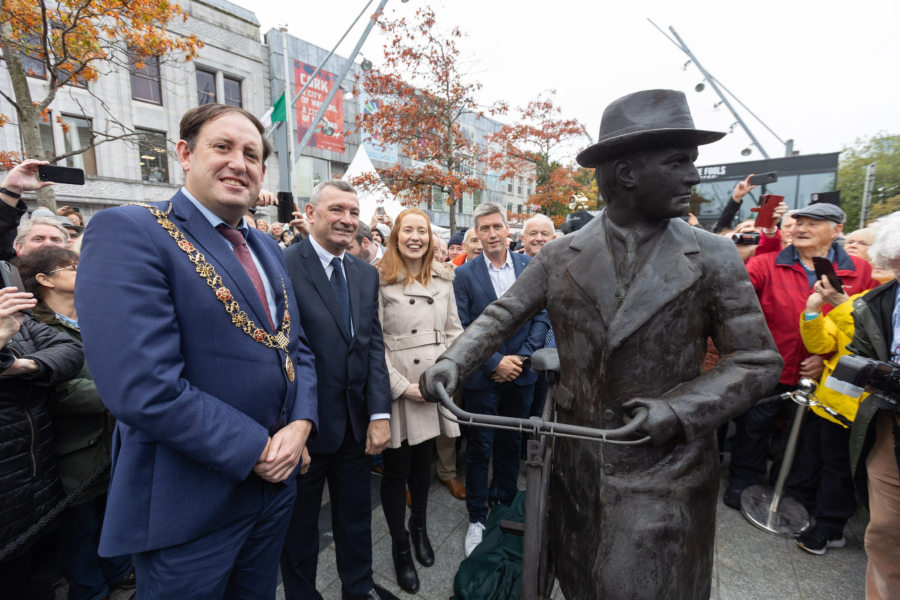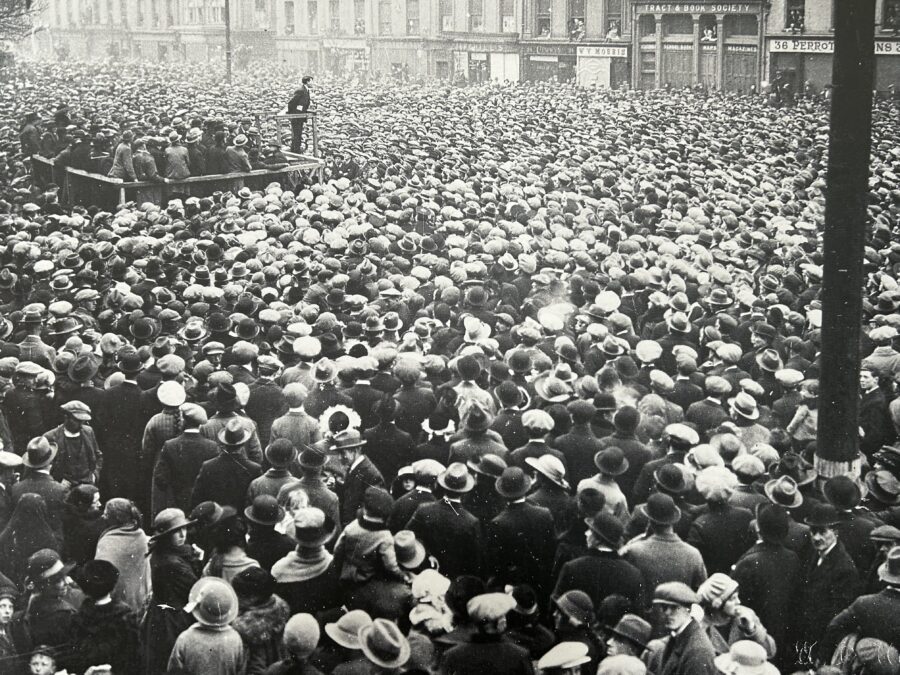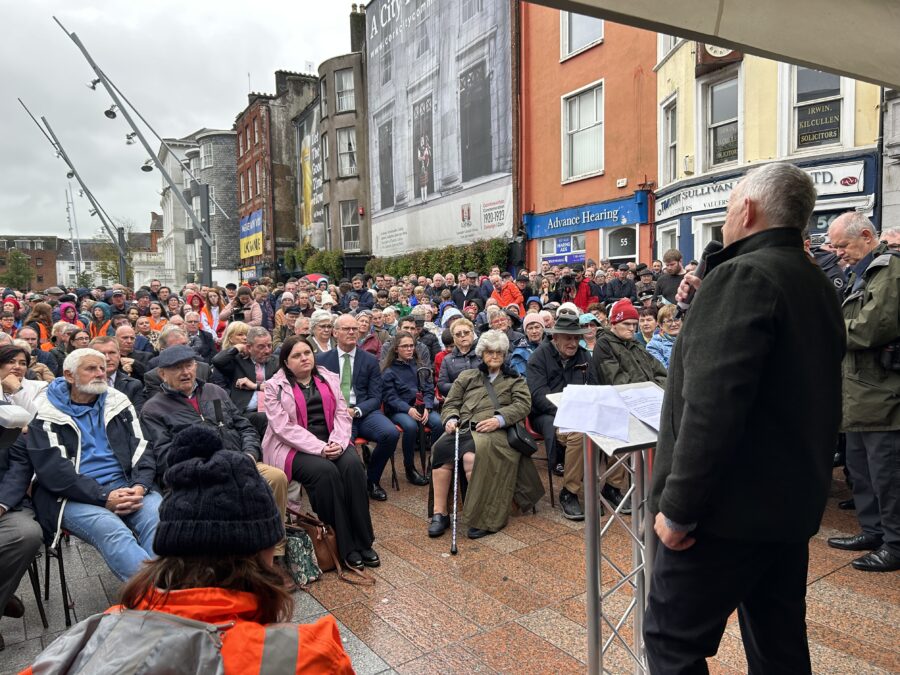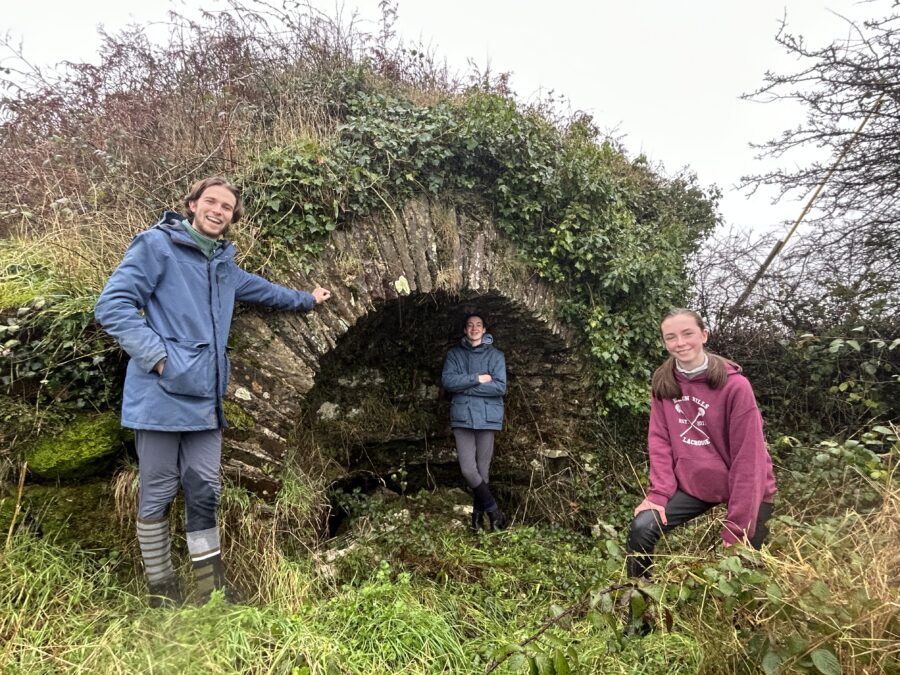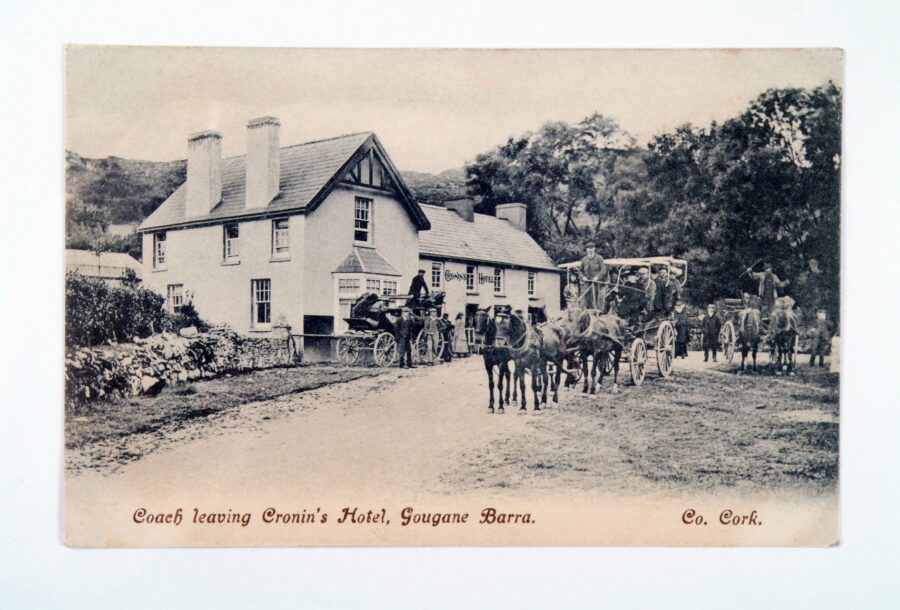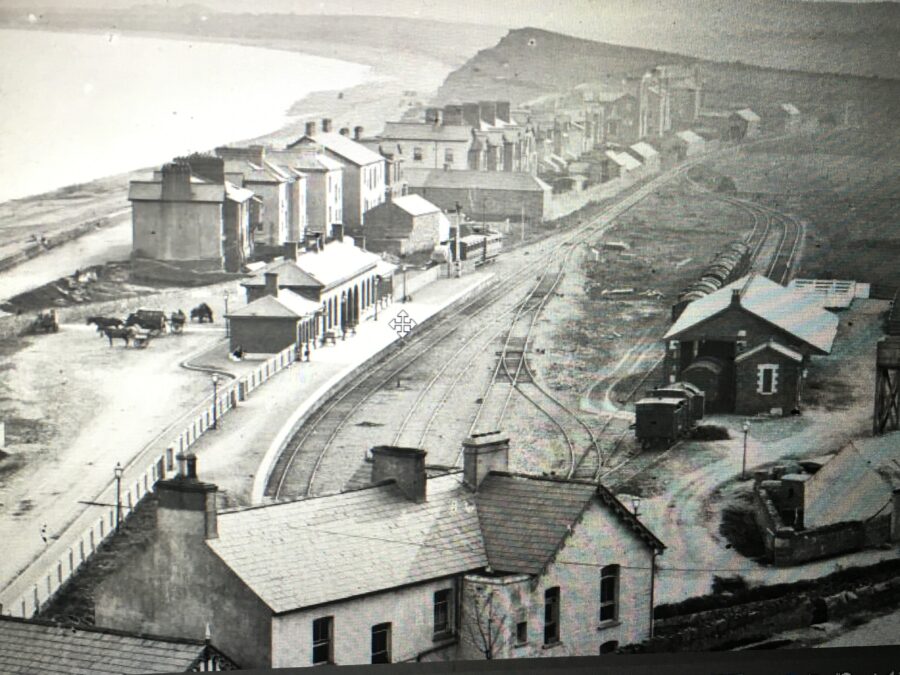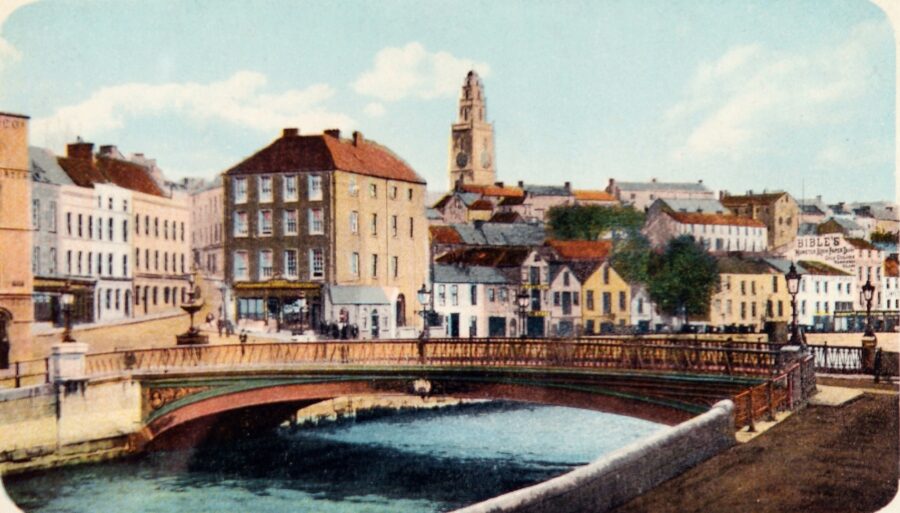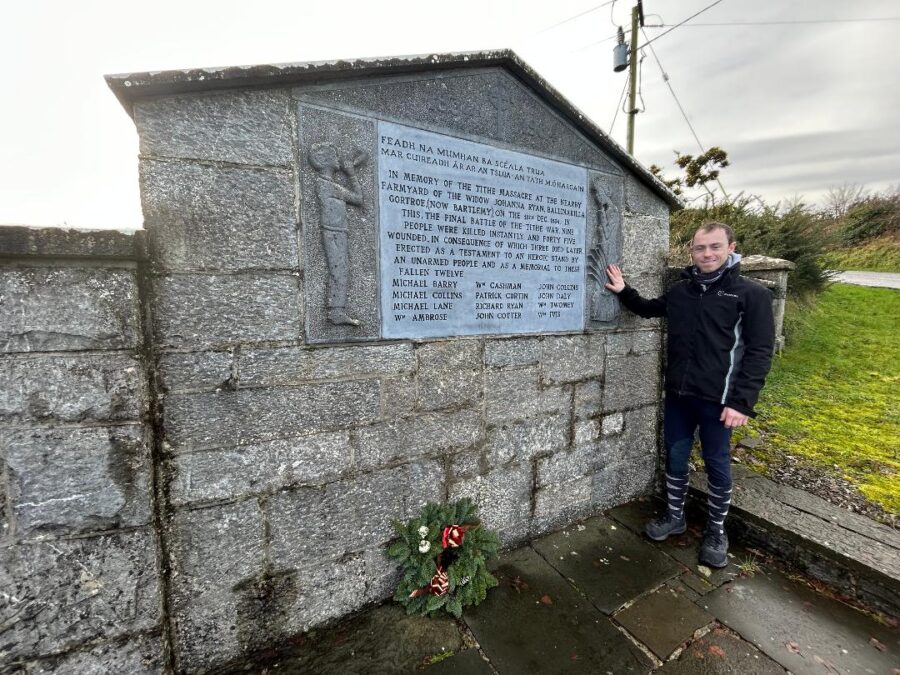
Kieran’s Our City, Our Town Article,
Cork Independent, 26 October 2023
Extracts: The A-Z of Curious County Cork
My new book, The A-Z of Curious County Cork is available in any good bookshop. Published by History Press UK (2023) the book has been born out of my own personal curiosity for many years now to venture off the main roads of County Cork to explore the curiosities of cultural heritage in County Cork. This week’s column shares more extracts from the new book.
GAME: Scoubeen was an early form of modern hurling, which was practised in early historic Ireland. Over the succeeding centuries, different kinds of sticks were used to drive roughly made spheres over the most basic of roads or across grassland. The rules were simple. The quasi-ball had to be played to a predetermined spot in a parish. There were no limits to how many players played in a scoubeen match. Due to no stewards or officials overseeing the game, any arguments were settled by physical fights. Of course, first aid was in very short supply.
Scoubeen sticks were usually home-made, were of all outlines and sizes – and not everyone played with one. The home-made ball could be made of anything from wool woven around a centre of a cork to matted cow hair, to something similar to the present-day sliothar. One could carry the ball in one’s pocket, but such a play by a player would end up with his clothing being torn to bits. Having a team with fast runners was of great benefi t as getting the ball to them and enabling them to pursue a solo run was signifi cant.
Players concentrating on their solo efforts had the prefix ‘fuadach’ connected to their surname. In the 1870s, a legendary scoubeen match took place between north Cork players at Ballyhea and Charleville. Both sides chose local players and some even arrived from the heart of County Limerick. The match is said to have involved the vast number of 500 players and commenced at the hill of the Old Pike. The ball was thrown in and up went the cry, ‘All for home’. From the start, Ballyhea progressed well.
Play continued until it was dragged into a meadow flooded to the depth of 30cm, across other landscape obstacles until it got as far the banks of the (Upper) Awbeg to a site named locally as Madigan’s Marsh. It was here a serious fight broke out. No one was killed or seriously wounded but the Charleville side eventually conceded. With the establishment of the Gaelic Athletic Association in 1884, the game of scoubeen rapidly disappeared.
INFLATION: Known as ‘the Fearless Frogman’, Irish-born Paul Boyton pursued daredevil acts in open water while ‘encased’ in a vulcanised rubber suit. The wearer inflated it by blowing into air tubes. This suit permitted him to float on the water and then he could move forward while using an oar. Paul was confident that the apparatus could protect hundreds of lives if more of the public were aware of it. To attract media attention, Paul decided to carry out a number of high-profile stunts. In the port of New York in October 1874, Paul’s stunt was rejected by several ships’ captains. They did want to allow a man to jump off a ship into the Atlantic Ocean for fear he would drown. To avert any further refusal, he boarded a ship.
MASSACRE: The formal unveiling of the Gortroe Massacre memorial stone took place on 16 December 1984. Sculpted by Michael Sheedy of Midleton, the memorial depicts two panels: one shows a young boy blowing a cow horn to summon the community to resist the troops as they come to collect tithes; the second shows the Widow Ryan, who owned the tithes. She is weeping by a stack of corn, the twelve ears of which represent the twelve who died at the massacre, which took place on 18 December 1834. It was where the last great fight of the Tithe War of 1831–38 occurred.
Tithes were initially voluntary offerings to the Protestant clergy in appreciation for their work. They were separated into three sums, one of which was to deliver education for all the poor and for the youth of the parish; the second was for the needs of the impoverished and the sorrowing and the hungry; the third was to provide for the upkeep of the local Protestant church.
The true opposition to the payment of tithes came with the Reformation when the clergy, becoming Protestant, were separated from the people. Occupiers of land were obliged to pay tithes to clergymen whose services they rejected. After the passing of Catholic Emancipation in 1829, the public turned towards getting rid of the tithes, which were levied on crops and not on grassland and thus affected the hard-working farmer. The house of Widow Ryan of Gortroe townland stood on a hill overlooking the road from Rathcormac to Midleton. She owed £2 8s tithe to Rev. William Ryder and had refused to pay it in protest against the tithe system and in agreement with her neighbours.
On the morning of 18 December 1834, a company of 100 men with their officers – making in all 121-armed men – were instructed from Fermoy to Rathcormac to arrive at the Ryan house at 10.30 a.m. to meet Rev. William Ryder and Captain Collis. Nine cavalry from the 4th Dragoon Guards were to complement them. On arrival at the Tallow Road, between Bartlemy and Bluebell Cross, the cavalry observed that a crowd of people had gathered.
The Riot Act was read but the people did not disband. The troops had already fixed bayonets. Now they were given instructions to ‘prime and load’ their musket guns. Having complied, the troops moved down the lane to Mrs Ryan’s house, the cavalry going ahead. A cart had been drawn across the lane leading to the haggard (a large haystack adjacent to a house) and the people had assembled in the yard behind the cart. They brought sticks. Captain Sheppard moved up front with a detachment, who were ordered by Major Walter to charge. The soldiers leapt up on the cart but were hurled back. Walter ordered a flanking attack and the soldiers tried to get over the haggard wall but these were also pushed back.
The order to fire was then given, but the crowd, instead of scattering as was expected, closed in on the cart and the soldiers fired at the men still standing at the cart, brandishing their sticks. A trumpeter sounded the ceasefire. In all, sixty-seven shots had been fired and nine men were killed and seven seriously wounded. A memorial stands at Gortroe today in memory of those killed.
Caption:
1225a. Gortroe memorial with local Fred Wilson, present day (picture: Kieran McCarthy).
